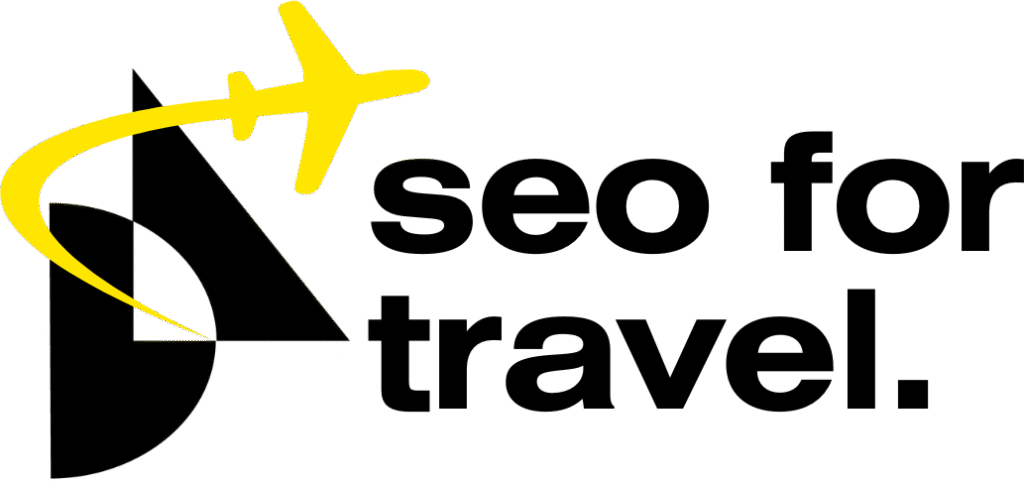Measuring ROI for SEO Campaigns in the Travel Industry

In the competitive travel sector, investing in SEO is essential for enhancing online visibility and attracting potential customers. However, measuring the return on investment (ROI) of SEO campaigns is crucial to ensure that resources are being utilised effectively. At SEO For Travel, we specialise in providing SEO services tailored to the travel industry, helping businesses optimise their online presence and achieve measurable results.
Understanding SEO ROI
ROI in SEO refers to the financial return gained from the investments made in SEO activities.
Being able to determine the profitability of SEO efforts by comparing the revenue generated through organic search against the costs incurred in implementing SEO strategies is crucial.
Key Metrics to Track
To accurately measure SEO ROI, it’s essential to focus on metrics that directly impact business outcomes. These include:
- Organic Traffic: The number of visitors arriving at your website through organic search results. An increase in organic traffic indicates improved visibility and relevance in search engines.
- Conversion Rate: The percentage of visitors who take a desired action, such as making a booking or filling out a contact form. A higher conversion rate signifies effective engagement and user experience.
- Revenue from Organic Search: The total income generated from customers who found your website through organic search. This metric directly reflects the financial impact of SEO efforts.
- Cost of SEO: The total expenditure on SEO activities, including content creation, link building, and technical optimisations. Monitoring this cost helps assess the efficiency of SEO investments.
Avoiding Misleading Metrics
While various metrics are available, not all provide valuable insights into SEO performance. It’s important to be cautious of metrics that may not directly correlate with business success:
- Impressions: The number of times your website appears in search results. While impressions can indicate visibility, they don’t necessarily translate to user engagement or conversions.
- Bounce Rate: The percentage of visitors who leave your site after viewing only one page. A high bounce rate may suggest that visitors aren’t finding what they’re looking for, but it doesn’t account for users who find the information they need on a single page.
- Keyword Rankings: While ranking for targeted keywords is important, focusing solely on rankings without considering the quality of traffic and conversions can be misleading.
Tools for Measuring SEO ROI
Utilising the right tools can streamline the process of tracking and measuring SEO ROI:
- Google Analytics: Provides insights into website traffic, user behaviour, and conversion tracking, enabling businesses to assess the effectiveness of SEO strategies.
- Google Search Console: Offers data on search performance, including impressions, clicks, and average position, helping identify areas for improvement.
- CRM Systems: Integrating SEO data with customer relationship management systems allows for tracking the journey from organic search to conversion, providing a comprehensive view of ROI.
Measuring the ROI of SEO campaigns is vital for travel businesses to ensure that their SEO efforts are delivering tangible results. By focusing on relevant metrics and avoiding misleading figures, companies can make informed decisions about their SEO strategies. At SEO For Travel, we offer specialised SEO services for the travel industry, helping businesses optimise their online presence and achieve measurable success.


tnmlcs
o3cp5j
https://shorturl.fm/8pDs4
https://shorturl.fm/z89Mk
https://shorturl.fm/Jq6Vc
https://shorturl.fm/HhLL1
https://shorturl.fm/KeVJ4
https://shorturl.fm/iMqyj
https://shorturl.fm/RuP2j
https://shorturl.fm/0bN4x
https://shorturl.fm/E7wc0
https://shorturl.fm/NXKv1
https://shorturl.fm/JGiSC
https://shorturl.fm/W6nUv
https://shorturl.fm/7Jwdb
https://shorturl.fm/jqIjI
https://shorturl.fm/cMhu4
https://shorturl.fm/7E5ZC
https://shorturl.fm/BGCHs
https://shorturl.fm/zsWDg
https://shorturl.fm/vedNF
https://shorturl.fm/AzS5d
https://shorturl.fm/QGzi4
https://shorturl.fm/tRb73
https://shorturl.fm/df6qb
https://shorturl.fm/gzMhf
https://shorturl.fm/DuhvY
https://shorturl.fm/EzQL1
https://shorturl.fm/9FzZl
https://shorturl.fm/dx26G
https://shorturl.fm/s0SHr
https://shorturl.fm/qqPfI
o9hucb
https://shorturl.fm/PPd2L
https://shorturl.fm/TTi45
https://shorturl.fm/Sr05O
https://shorturl.fm/dyVaq
https://shorturl.fm/wE7UE
https://shorturl.fm/sOb68
https://shorturl.fm/JqMZH
https://shorturl.fm/SfzJv
https://shorturl.fm/G0AOR
https://shorturl.fm/aew9V
https://shorturl.fm/BdQxv
https://shorturl.fm/c0nAP
https://shorturl.fm/ujo7s
https://shorturl.fm/dChSP
https://shorturl.fm/91D16
https://shorturl.fm/k8MWP
https://shorturl.fm/f0wUT
https://shorturl.fm/3QELb
https://shorturl.fm/nnBx2
https://shorturl.fm/InV1J
https://shorturl.fm/pwqV5
https://shorturl.fm/Hs8Iw
https://shorturl.fm/LWpX5
https://shorturl.fm/NcueT
https://shorturl.fm/vtX4E
https://shorturl.fm/OFCEJ
https://shorturl.fm/DUFTx
https://shorturl.fm/FWuA0
https://shorturl.fm/Iil2g
https://shorturl.fm/ZpXKj
https://shorturl.fm/rEugo
https://shorturl.fm/1tZ33
https://shorturl.fm/Oxw6k
https://shorturl.fm/3PxpO
https://shorturl.fm/GYUCb
https://shorturl.fm/LXJF8
https://shorturl.fm/zXNwV
https://shorturl.fm/bHV1z
https://shorturl.fm/KvoFs
https://shorturl.fm/GHj0R
https://shorturl.fm/Vmzs6
https://shorturl.fm/y7hti
https://shorturl.fm/8K87j
https://shorturl.fm/xW4L1
https://shorturl.fm/BIwME
https://shorturl.fm/HiY0g
https://shorturl.fm/7BUq1
https://shorturl.fm/Roq4H
https://shorturl.fm/H9ags
https://shorturl.fm/157Vr
https://shorturl.fm/AX3I7
https://shorturl.fm/VPYJ1
https://shorturl.fm/XAPhF
https://shorturl.fm/VS6eK
https://shorturl.fm/9eUiM
https://shorturl.fm/MQvnK
https://shorturl.fm/goGhK
https://shorturl.fm/HB3Ss
https://shorturl.fm/cecKs
https://shorturl.fm/kWYFX
https://shorturl.fm/InhAU
https://shorturl.fm/SBl8E
https://shorturl.fm/m5HZi
https://shorturl.fm/NQ0oZ
https://shorturl.fm/1iU7G
https://shorturl.fm/ctZbl
https://shorturl.fm/OTI4r
https://shorturl.fm/FxbOq
https://shorturl.fm/zwLoY
https://shorturl.fm/gVdF7
https://shorturl.fm/ZYxji
https://shorturl.fm/zSAFU
https://shorturl.fm/Vsgq7
https://shorturl.fm/SKXGI
https://shorturl.fm/MFviA
https://shorturl.fm/YFKSP
https://shorturl.fm/kOv8N
https://shorturl.fm/LU4qO
https://shorturl.fm/mYJuu
https://shorturl.fm/p7b6e
https://shorturl.fm/9r4A0
https://shorturl.fm/4ZjsH
https://shorturl.fm/tBmSS
https://shorturl.fm/1J4Pb
https://shorturl.fm/EWZn7
https://shorturl.fm/25J8J
https://shorturl.fm/j8KYR
https://shorturl.fm/3Af3o
https://shorturl.fm/wnFSZ
https://shorturl.fm/0J4jT
https://shorturl.fm/JubCz
https://shorturl.fm/oHWfH
https://shorturl.fm/q53UL
https://shorturl.fm/JDTFQ
https://shorturl.fm/oE4Kx
https://shorturl.fm/oNoMh
https://shorturl.fm/S36VM
https://shorturl.fm/TpCbC
https://shorturl.fm/Eka5T
https://shorturl.fm/bQ4ce
https://shorturl.fm/oRmaK
https://shorturl.fm/vrMtp
https://shorturl.fm/ZGxls
https://shorturl.fm/oEzgx
https://shorturl.fm/Zj6iv
https://shorturl.fm/TnfDl
https://shorturl.fm/ddDGd
mj4e9d
https://shorturl.fm/ULFAY
https://shorturl.fm/Zga4I
https://shorturl.fm/LZaTF
https://shorturl.fm/kTUx9
https://shorturl.fm/YeUBu
https://shorturl.fm/d20ui
https://shorturl.fm/uLbAE
https://shorturl.fm/sGyu3
https://shorturl.fm/mpNlh
https://shorturl.fm/RDor6
https://shorturl.fm/FGv3H
https://shorturl.fm/WtdOF
https://shorturl.fm/sBEvb
https://shorturl.fm/bKQAP
https://shorturl.fm/RFdhN
https://shorturl.fm/jJTXD
https://shorturl.fm/rHYBV
https://shorturl.fm/Se0UC
https://shorturl.fm/QFBPH
https://shorturl.fm/xW3zE
https://shorturl.fm/oUC6m
https://shorturl.fm/a41eU
https://shorturl.fm/Hkg9r
https://shorturl.fm/Tc3i5
https://shorturl.fm/Pf2qj
https://shorturl.fm/NFvKG
https://shorturl.fm/qge1B
https://shorturl.fm/ptcFK
https://shorturl.fm/bio4l
https://shorturl.fm/fz5yQ
https://shorturl.fm/DZRTd
https://shorturl.fm/KA0iw
https://shorturl.fm/fuOdu
https://shorturl.fm/QOaIq
https://shorturl.fm/CAsDT
https://shorturl.fm/VIuQ4
https://shorturl.fm/6g840
https://shorturl.fm/Gwad9
https://shorturl.fm/eqNlO
https://shorturl.fm/iZILl
https://shorturl.fm/TnmWN
https://shorturl.fm/vkZwE
https://shorturl.fm/wFqVU
https://shorturl.fm/1jkUp
https://shorturl.fm/iUII4
https://shorturl.fm/Z1C5S
https://shorturl.fm/lOcro
https://shorturl.fm/AeJFG
https://shorturl.fm/AHBWd
https://shorturl.fm/HgHWY
https://shorturl.fm/jE9ct
https://shorturl.fm/nVCA2
https://shorturl.fm/CToKB
https://shorturl.fm/3CcUr
https://shorturl.fm/zzv5B
https://shorturl.fm/2rKoW
https://shorturl.fm/xGLdO
https://shorturl.fm/H7CvL
https://shorturl.fm/Ttelw
https://shorturl.fm/cGW8i
https://shorturl.fm/eIbJ7
https://shorturl.fm/teOFY
https://shorturl.fm/wlKR5
https://shorturl.fm/pJSeF
https://shorturl.fm/maIJw
https://shorturl.fm/7Ibi5
https://shorturl.fm/82SCJ
https://shorturl.fm/da246
https://shorturl.fm/eLVOw
https://shorturl.fm/QmYwh
https://shorturl.fm/YjB1E
https://shorturl.fm/TimWp
https://shorturl.fm/o0XIY
https://shorturl.fm/Q9wkn
https://shorturl.fm/nbmzF
https://shorturl.fm/IxLoU
https://shorturl.fm/aJneS
https://shorturl.fm/wVony
https://shorturl.fm/KCmIV
https://shorturl.fm/5FtD4
https://shorturl.fm/CjnXR
https://shorturl.fm/yZQAg
https://shorturl.fm/ntd7Q
https://shorturl.fm/Is7jP
https://shorturl.fm/EUyLM
https://shorturl.fm/6DxNn
https://shorturl.fm/RVgtP
https://shorturl.fm/jO6ye
https://shorturl.fm/YHkB9
https://shorturl.fm/2bRsP
https://shorturl.fm/dZclj
https://shorturl.fm/ezCUN
https://shorturl.fm/6l5Nt
https://shorturl.fm/P3Mt8
https://shorturl.fm/qgstN
https://shorturl.fm/dTLyr
https://shorturl.fm/5miy6
https://shorturl.fm/pifOY
https://shorturl.fm/aXuNl
https://shorturl.fm/wC7aF
https://shorturl.fm/arY79
https://shorturl.fm/vJytH
https://shorturl.fm/u7ISa
https://shorturl.fm/hycR8
8ihly2
https://shorturl.fm/BtxAj
https://shorturl.fm/FUHaM
https://shorturl.fm/15o9r
https://shorturl.fm/APPek
https://shorturl.fm/5KXoD
https://shorturl.fm/oNY93
https://shorturl.fm/wsBDH
https://shorturl.fm/HyYyj
https://shorturl.fm/FHRBY
https://shorturl.fm/tEUXh
https://shorturl.fm/yQ8G9
https://shorturl.fm/v81Rr
https://shorturl.fm/7aC9E
https://shorturl.fm/RtSU5
https://shorturl.fm/tBIGQ
https://shorturl.fm/mIqGi
https://shorturl.fm/8nOfp
https://shorturl.fm/reQLG
https://shorturl.fm/8wSVd
https://shorturl.fm/D8zJZ
https://shorturl.fm/V3ozm
https://shorturl.fm/D4mxs
https://shorturl.fm/koFrI
https://shorturl.fm/aZnbA
https://shorturl.fm/Jb8ps
https://shorturl.fm/cp6kV
https://shorturl.fm/yZQ56
https://shorturl.fm/yNuOo
https://shorturl.fm/wVkbI
https://shorturl.fm/KRZub
https://shorturl.fm/gYXyD
https://shorturl.fm/gI3yJ
https://shorturl.fm/SNPZg
https://shorturl.fm/gTDDK
https://shorturl.fm/m4t0X
https://shorturl.fm/Ov9Za
tcdra9
https://shorturl.fm/cwQdZ
https://shorturl.fm/685Sd
https://shorturl.fm/AEMqI
https://shorturl.fm/LbLIU
https://shorturl.fm/xaL25
https://shorturl.fm/cQOKd
https://shorturl.fm/XCcRJ
https://shorturl.fm/6I0Dx
https://shorturl.fm/HqReq
https://shorturl.fm/Y3m8T
https://shorturl.fm/vERvp
https://shorturl.fm/d1PPf
https://shorturl.fm/POqR6
https://shorturl.fm/7EaGE
https://shorturl.fm/QJwKJ
https://shorturl.fm/qnE77
https://shorturl.fm/cPhkL
https://shorturl.fm/qkOrA
https://shorturl.fm/ruyRd
https://shorturl.fm/cRDH7
https://shorturl.fm/WAIg6
https://shorturl.fm/3hqvG
https://shorturl.fm/Yn8sF
https://shorturl.fm/sVRvA
https://shorturl.fm/NmNzy
https://shorturl.fm/4nyXN
https://shorturl.fm/YHtlK
https://shorturl.fm/fOkkW
https://shorturl.fm/94aZF
https://shorturl.fm/UR8cB
https://shorturl.fm/9qwTd
https://shorturl.fm/wz2Xy
https://shorturl.fm/kWpqq
https://shorturl.fm/3XONh
https://shorturl.fm/yUdaI
https://shorturl.fm/tGAw1
https://shorturl.fm/9rtk6
https://shorturl.fm/9Bh3s
https://shorturl.fm/Vu6T4
https://shorturl.fm/0WJy5
https://shorturl.fm/m8hQ1
https://shorturl.fm/FlB6x
https://shorturl.fm/XZSSN
https://shorturl.fm/MW1fy
https://shorturl.fm/Hnr3A
https://shorturl.fm/Hnr3A
https://shorturl.fm/H8N1i
https://shorturl.fm/zPkVI
https://shorturl.fm/PFvIm
https://shorturl.fm/cqE4s
https://shorturl.fm/u5x1r
https://shorturl.fm/tCVlv
https://shorturl.fm/AUXk8
https://shorturl.fm/dBoKw
https://shorturl.fm/kWYfB
https://shorturl.fm/MJwBT
https://shorturl.fm/JsLMN
https://shorturl.fm/SdZg8
https://shorturl.fm/apdzJ
https://shorturl.fm/lMVQv
https://shorturl.fm/ojYrR
https://shorturl.fm/J6cVH
https://shorturl.fm/Dz0q4
https://shorturl.fm/9njRg
https://shorturl.fm/nZmLB
https://shorturl.fm/p4Bcg
https://shorturl.fm/95tot
https://shorturl.fm/TCUXE
https://shorturl.fm/YQk98
https://shorturl.fm/j9dC2
https://shorturl.fm/CA35N
https://shorturl.fm/EASex
https://shorturl.fm/OtolL
https://shorturl.fm/WVOxX
https://shorturl.fm/f2xSF
https://shorturl.fm/euZEs
https://shorturl.fm/CdXEc
https://shorturl.fm/CMp9v
https://shorturl.fm/USpyn
https://shorturl.fm/9u8aS
https://shorturl.fm/AI6HY
https://shorturl.fm/EPbD7
https://shorturl.fm/9MwYK
https://shorturl.fm/v82yk
https://shorturl.fm/pqoI1
https://shorturl.fm/OjqBn
https://shorturl.fm/GbNyD
https://shorturl.fm/DYyZg
https://shorturl.fm/mb3TV
https://shorturl.fm/zq2Ot
https://shorturl.fm/fwQ0O
https://shorturl.fm/C5og0
https://shorturl.fm/l9Eg0
https://shorturl.fm/GcK6G
https://shorturl.fm/b1nOB
https://shorturl.fm/uVPKr
https://shorturl.fm/v06vM
https://shorturl.fm/TBSFm
https://shorturl.fm/8E54G
https://shorturl.fm/CzJrZ
https://shorturl.fm/iViRu
https://shorturl.fm/2wDmn
https://shorturl.fm/9FLNs
https://shorturl.fm/19NZM
https://shorturl.fm/D7eYi
https://shorturl.fm/jJqqV
https://shorturl.fm/5hpZh
https://shorturl.fm/HvVEc
https://shorturl.fm/Nw69N
https://shorturl.fm/hg3Xd
https://shorturl.fm/lclQ8
https://shorturl.fm/sKbMD
https://shorturl.fm/99oEk
https://shorturl.fm/qmFWZ
https://shorturl.fm/qmFWZ
https://shorturl.fm/Psrxz
https://shorturl.fm/c4RGO
https://shorturl.fm/MAVag
https://shorturl.fm/Z5Klx
https://shorturl.fm/Akrm9
https://shorturl.fm/qPry2
https://shorturl.fm/vPgVu
Enter your invite code to earn your airdrop on Aster https://is.gd/ZceEI6
Earn recurring commissions with each referral—enroll today!
Hi https://is.gd/9PLRLO
Hi https://is.gd/9PLRLO
Hello https://is.gd/tvHMGJ
AI Girls Video
AI Girls Video
Partner with us and enjoy recurring commission payouts!
Start profiting from your traffic—sign up today!
Promote our brand and watch your income grow—join today!
Drive sales, earn commissions—apply now!
Promote our brand and watch your income grow—join today!
Promote our brand and get paid—enroll in our affiliate program!
Promote our brand and get paid—enroll in our affiliate program!
Apply now and receive dedicated support for affiliates!
Refer and earn up to 50% commission—join now!
Promote our products—get paid for every sale you generate!
Turn referrals into revenue—sign up for our affiliate program today!
Share our offers and watch your wallet grow—become an affiliate!
Join our affiliate community and maximize your profits!
Join our affiliate program today and earn generous commissions!
Monetize your audience with our high-converting offers—apply today!
Start earning on autopilot—become our affiliate partner!
Turn your audience into earnings—become an affiliate partner today!
Get rewarded for every recommendation—join our affiliate network!
Join our affiliate program and start earning today—sign up now!
Get rewarded for every recommendation—join our affiliate network!
Turn your network into income—apply to our affiliate program!
Earn big by sharing our offers—become an affiliate today!
Tap into a new revenue stream—become an affiliate partner!
Sign up for our affiliate program and watch your earnings grow!
Join forces with us and profit from every click!
Refer friends and colleagues—get paid for every signup!
Get paid for every referral—sign up for our affiliate program now!
Join our affiliate community and maximize your profits—sign up now!
Be rewarded for every click—join our affiliate program today!
Join our affiliate family and watch your profits soar—sign up today!
Become our affiliate—tap into unlimited earning potential!
Join forces with us and profit from every click!
Partner with us for generous payouts—sign up today!
Maximize your earnings with top-tier offers—apply now!
Join our affiliate program today and start earning up to 30% commission—sign up now!